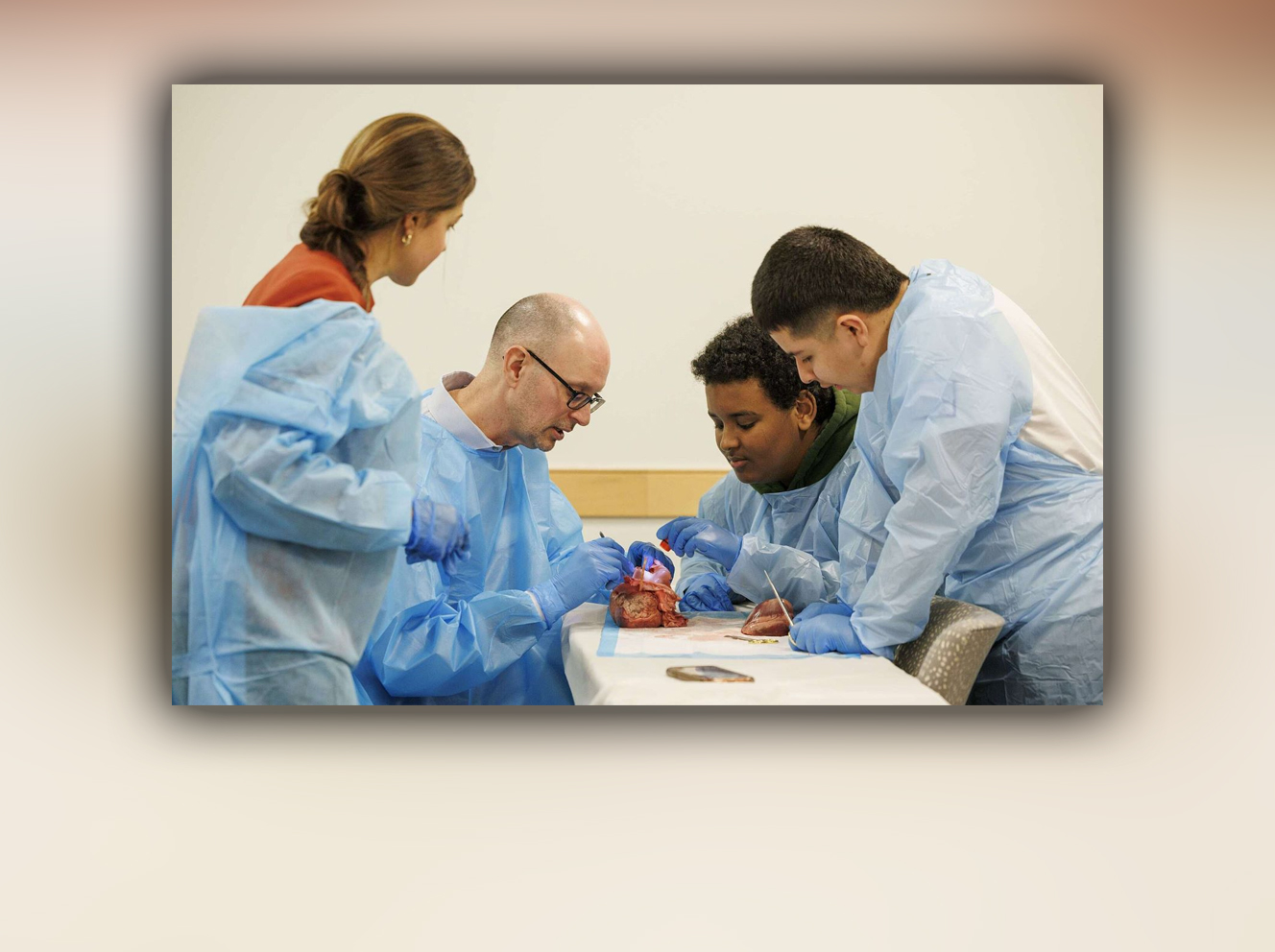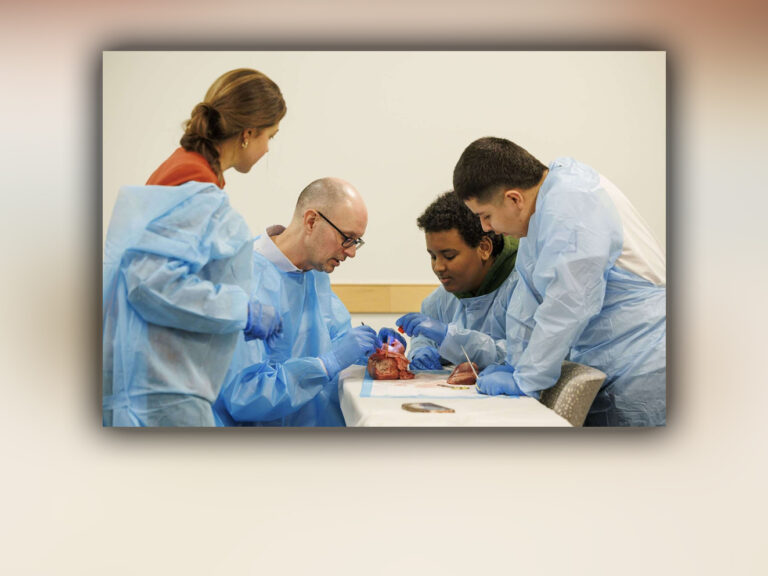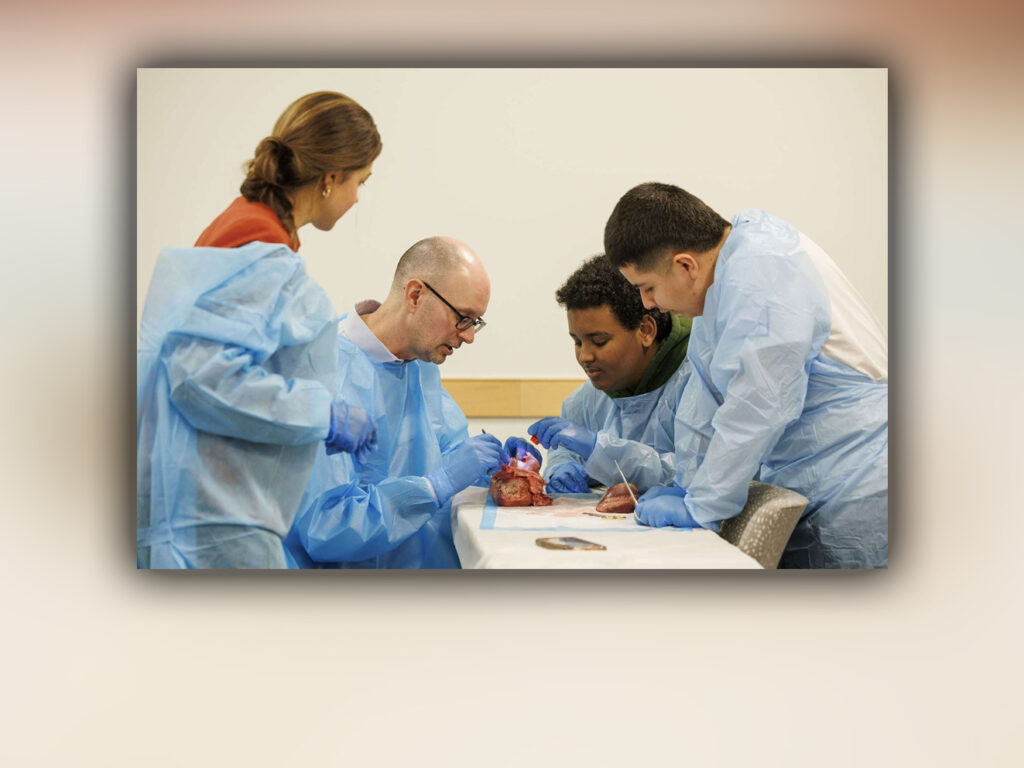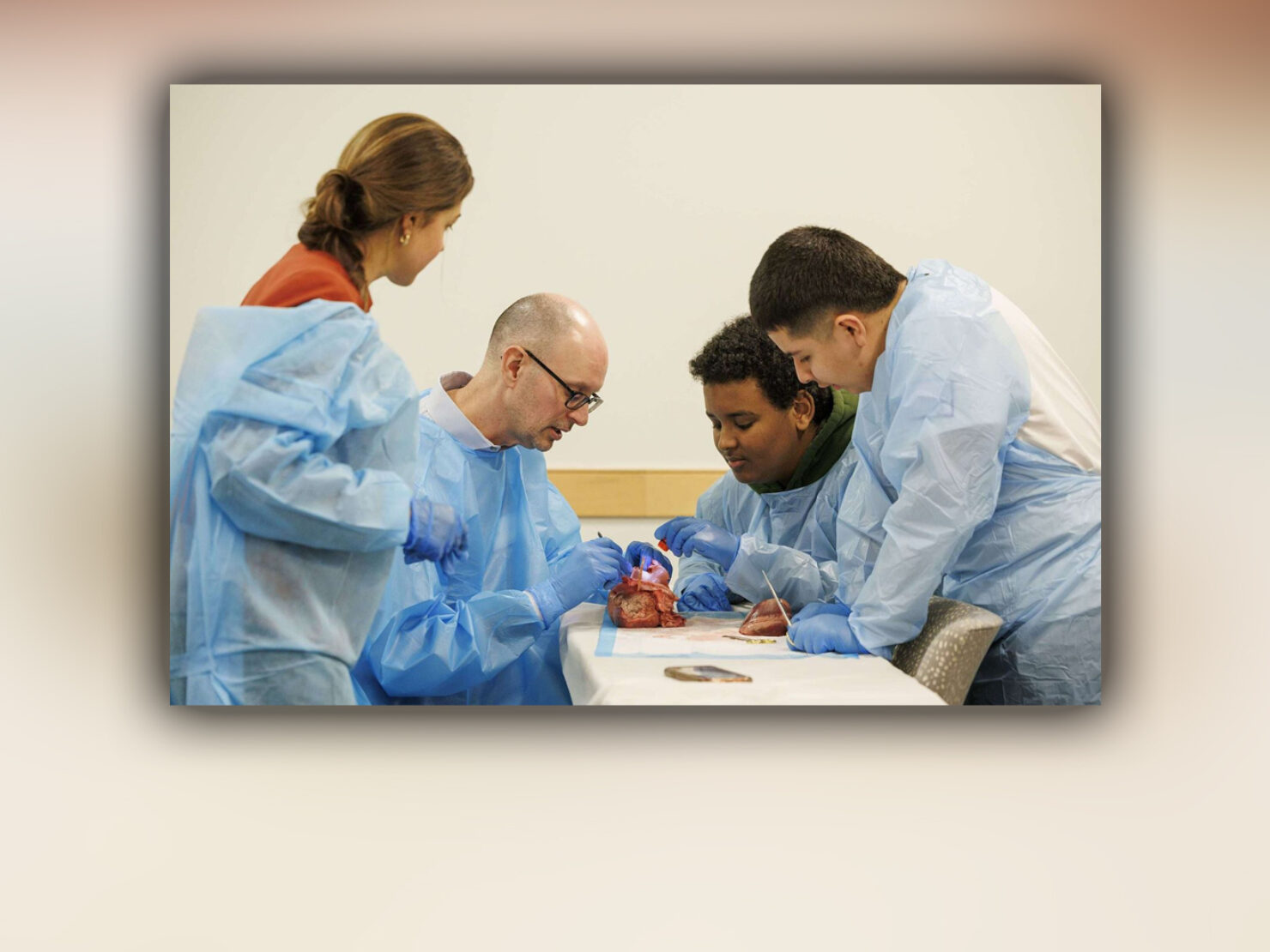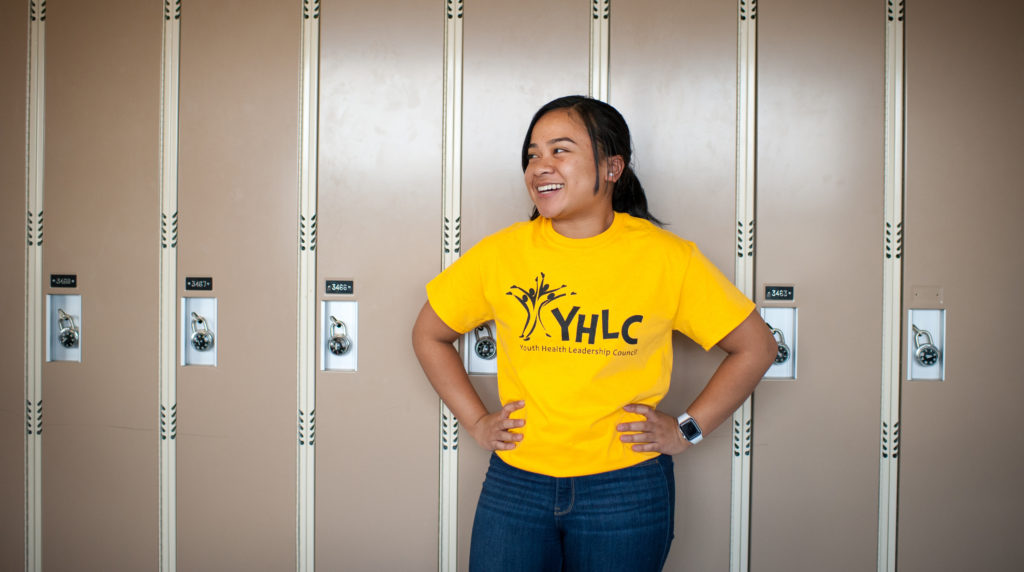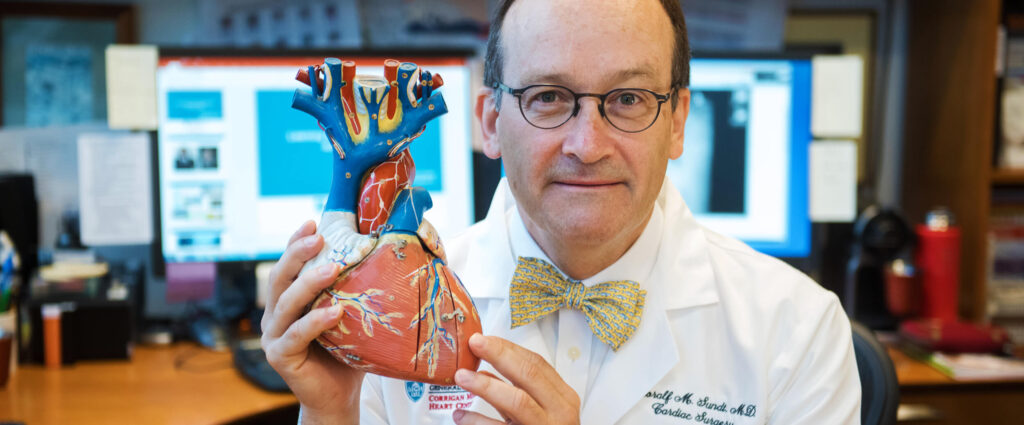Giselle A. Suero-Abreu, MD, PhD, MSc, has fond childhood memories of traveling through her home country of the Dominican Republic with her father. As a doctor, he often treated patients in underserved communities across the island, and his care left an indelible impression on Dr. Suero-Abreu. She carried that spirit to her graduate and medical training in the United States and eventually to Massachusetts General Hospital, where she is currently a senior fellow in advanced cardiovascular imaging.
However, the further Dr. Suero-Abreu got into her training, the more she learned about the disparities within the cardiology field. According to sources such as the Physician Specialty Data Report and the Journal of the American Medical Association, only 13% of practicing cardiologists are women and 7.5% are physicians of color.

That lack of provider diversity has a connection to patient outcomes: the Boston Public Health Commission’s “Health of Boston 2023: The Heart Disease Report” found that heart disease hospitalization rates for Black men were 77% higher compared to their white counterparts, while rates for Black women were more than double that of white women — and 25% higher for Hispanic women than for white women. Numerous studies have shown that these patients achieve better outcomes when their doctors look like them.
To rise to this challenge, Dr. Suero-Abreu, with the support of Doreen DeFaria Yeh, MD, director of Mass General’s Cardiovascular Disease Fellowship and co-director of the Cardiovascular Disease and Pregnancy Program, launched a new initiative to introduce local high school students from underrepresented populations to careers in cardiology. Called You Belong in Cardiology, the program’s first cohort in 2024 helped 49 students from Boston, Chelsea and Revere learn more about the work of cardiologists and allied roles.
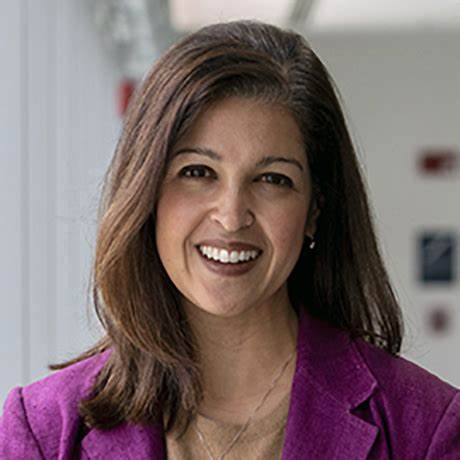
“We have to do everything we can to represent the populations we serve,” Dr. Suero-Abreu says. “There are multiple reasons why we have a leaky pipeline of underrepresented minorities in cardiology from high school to college, medical school and beyond — and this program is a part of fixing that.”
Fueling the Spark
During her fellowship, Dr. Suero-Abreu proposed the concept of You Belong in Cardiology for a Mass General Cardiology Fellowship Innovation Award Program, a program supported by philanthropy that provides funding for novel and impactful projects brought forward by general cardiology fellows.
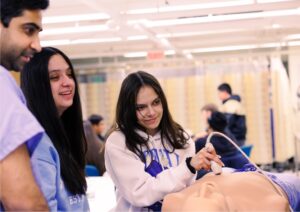
“Our fellows come to us with truly great ideas, and it is such a privilege to have the opportunity to support them in making these ideas become reality,” Dr. DeFaria Yeh says. “They have a lot of clarity on things we need to change in healthcare and are committed to advancing cardiovascular health equity. Our fellows are a tremendous source of energy and inspiration that we need to better serve our communities.”
Next, to bring in participants, Dr. Suero-Abreu partnered with the MGH Youth Scholars Program, which, since 2019, has worked with local high school students to boost their interest in science and healthcare. Throughout the program’s four sessions, students train in cardiopulmonary resuscitation (CPR); dissect pig hearts to learn about heart anatomy; participate in clinical simulations with cardiologists and nurses; have hands-on exposure to cardiac ultrasound; explore pathways to careers in cardiology, including nursing, cardiac imaging, athletic training and other affiliated health professions; and tour clinical facilities, like the catheterization lab.
Dr. Suero-Abreu was adamant that the sessions be interactive, especially after hearing about the experience of her cardiology colleague Kemar Brown, MD. Dr. Brown had participated in a similar program as a high school student in Queens, New York, and shared that dissecting a sheep heart ignited his interest in a cardiology career. He now specializes in treating heart failure and helps lead the CPR sessions for You Belong in Cardiology, and his connection with the American Heart Association helped secure CPR kits for every student.
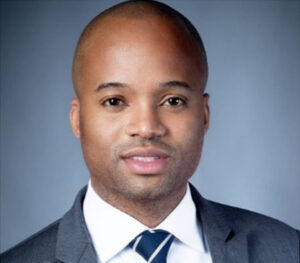
“If it wasn’t for the program I attended in high school, I wouldn’t be sitting in the seat I am today,” says Dr. Brown. “What we have to do with this program is find the sparks in our youth and provide fuel for them to keep those sparks burning. To be able to see the light in their eyes after each session brings me joy.”
Coming Full Circle
Dr. Suero-Abreu had a chance to stand on the other side of Dr. Brown’s high school experience when a student contacted her after completing the program and asked to shadow her during the day. When Dr. Suero-Abreu met with her, the student told her that dissecting the pig heart was incredibly impactful and that she wanted to be a heart surgeon. “It felt like a full-circle moment,” she says.
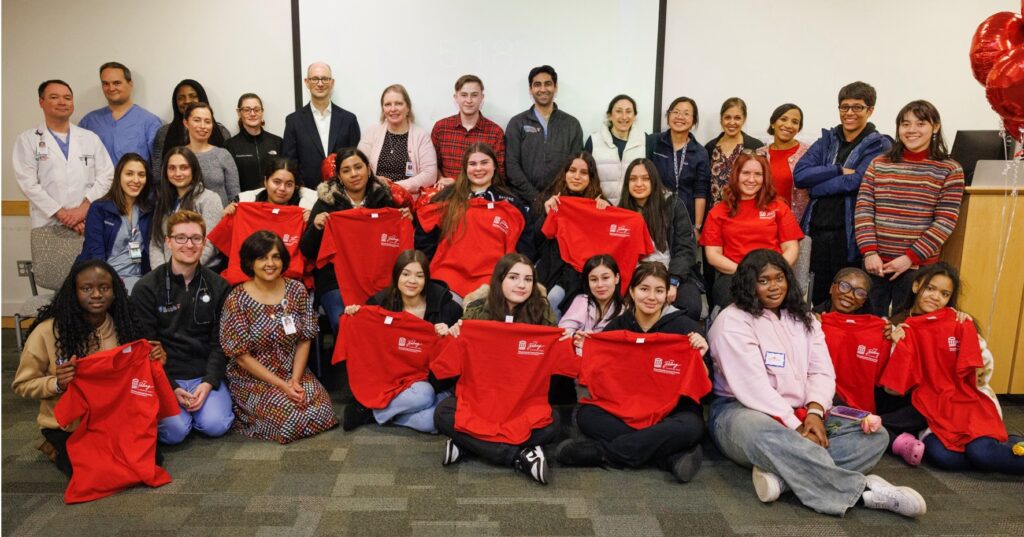
Even as students express their interest in medical professional careers, Drs. Suero-Abreu, DeFaria Yeh and Brown are clear that there are so many diverse ways they can contribute to advancing cardiovascular health. They will continue to highlight those career pathways, along with the other heart health topics, when the next cohort begins in early 2025.
“The field is broad, and nurses, sonographers, cardiac imaging technicians, catheterization lab technicians and others are all great career pathways critical to our daily clinical practice,” Dr. Suero-Abreu says. “There are so many ways to belong in the field of cardiology.”
“This program has become more than I ever imagined,” Dr. Suero-Abreu continues. “To have this community and this environment in a major city, at a major hospital, with amazing mentors to support the initiative is a dream come true.”
To learn more about how to support the MGH Youth Scholars and You Belong in Cardiology programs, contact us.
